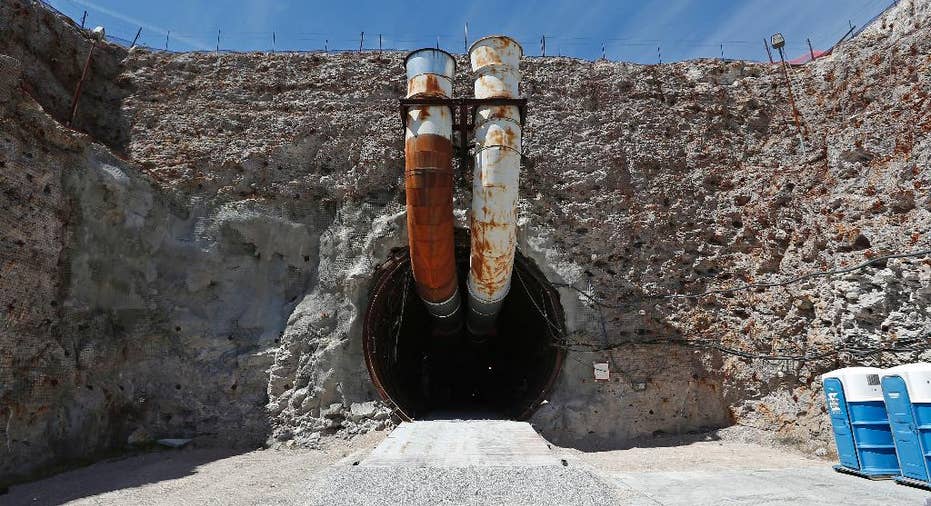Nuclear regulators to post draft study on proposed national radioactive waste dump in Nevada

LAS VEGAS – A key study in a series leading to licensing hearings for the long-stalled Yucca Mountain national nuclear waste dump in Nevada finds what the Nuclear Regulatory Commission is calling a small chance that radioactive contamination could get into the environment.
A Nevada state official said Friday he'll challenge the NRC findings about the proposed Yucca Mountain project on technical and legal grounds.
"They're saying that the impacts are small," Nevada Agency for Nuclear Projects chief Bob Halstead said. "From my review of the document, I'm skeptical that they have complied with the requirement that they imposed on the Energy Department in 2008" to update an initial 2002 environmental impact report.
The commission announced Thursday that it'll post its draft supplement to the document, called the Yucca Mountain Environmental Impact Statement, on Aug. 21 in the Federal Register. It plans meetings next month in Maryland, Las Vegas and Nye County before issuing a final document early next year.
Commission spokeswoman Maureen Conley said the Sept. 3 meeting will be at the NRC office in Rockville, Maryland. A venue for a Sept. 15 meeting in Las Vegas and a date and place for the Nye County session weren't immediately disclosed.
Halstead is the top state official working against the Yucca Mountain project. He acknowledged the latest NRC draft report is the last needed to move the Yucca Mountain licensing process into administrative hearings and a resolution.
The report focuses on potential contamination of an underground aquifer sloping west from the Yucca Mountain site, about 90 miles northwest of Las Vegas, toward farms in the Amargosa Valley and the scenic Death Valley National Park in California.
It concludes that peak radiation values would remain far below commission standards and a fraction of normal background radiation.
Approval of the document is expected early next year.
Barring court challenges, administrative hearings could then begin on a license to build and operate the repository. Officials have said a full slate of hearings could take at least three years.
Nevada elected officials fought for years against the Yucca Mountain project — before and after the site was approved by Congress as a nuclear dump in 2002.
But the united front has begun to erode, with the state's newest Congress member, Republican Rep. Cresent Hardy, saying he's willing to listen to offers of economic benefits in return for accepting the nation's nuclear waste.
U.S. Sen. Harry Reid has been a staunch opponent. He responded Thursday to the release of the NRC environmental study with another prediction that the repository will never be built.
Reid and Halstead noted that the new report didn't say how the federal government would obtain the water and land it would need to proceed.
Estimates are that $15 billion was spent drilling a 5-mile U-shaped tunnel and studying whether 77,000 tons of some of the most lethal material known to humans could remain safe and dry in casks wheeled on rails into a honeycomb of vaults 1,000 feet underground. Some estimates put the final cost at $100 billion.
Congress cut off funding after Reid became majority leader in 2007. Under President Barack Obama, the Energy Department shuttered the project and the Nuclear Regulatory Commission halted the licensing process.
A federal court in 2013 ordered the commission to resume licensing, after the states of Washington and South Carolina, plus Aiken County, South Carolina, the Prairie Island Indian Community of Minnesota and the National Association of Regulatory Utility Commissioners sued.
They argued that the federal government was breaking a promise to build a place to take their nuclear waste.
NRC staff in January released a report that appeared to provide wiggle room for adopting rules to open the repository, if decision-makers decide they want to go forward.



















